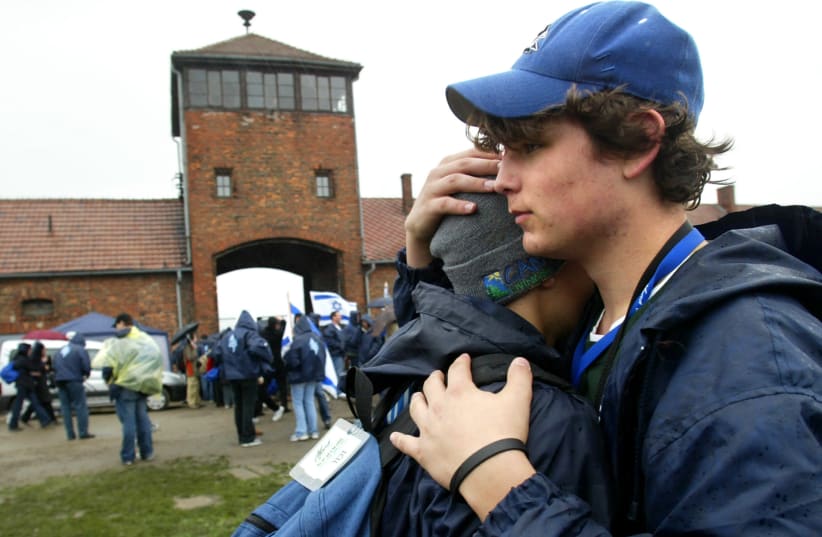The Polish Council of Christians and Jews warned against using emotions surrounding the "difficult issues" in the history of Poles and Jews to serve "current internal political conflicts" in Poland and Israel and called for a "responsible look at the history of Polish-Jewish relations" in a press release in late February.
Relations between Poland and Israel soured recently when Minister of Foreign Affairs Yisrael Katz said that "Poles suck Antisemitism with their mother's milk."Katz didn't coin the expression. It was originally said in 1989 by late prime minister Yitzhak Shamir who said it in relation to the Poles who murdered his father. Yet by repeating it in 2019 and refusing to take it back Katz caused a diplomatic uproar.
Poland pulled out of the Visegrad Group meeting meant to take place in Jerusalem in protest, leaving Hungary, Slovakia and the Czech Republic to attend. Chief Rabbi of Poland Michael Shudrich said that the statement should not have been made in 1989, let alone today.
In a different sort of reaction, Polish cartoonist Maciej Mackowiak drew a woman using a bottle to feed her baby saying "mother doesn't want to infect you with Antisemitism."
Recent changes in Polish law have made it an offense to say that the Polish nation, as a whole, took part in atrocities committed against the Jews in occupied Poland during the Second World War. The logic being that Poland was occupied and unlike other countries, the Germans were largely unable to establish a puppet government to collaborate with them.The distinction is made between individual Polish people who committed crimes against Jews and the nation as a whole, which suffered greatly under the Nazis.
However, according to a study recently released by the Polish Academy of Sciences, two out of three Jewish citizens of Poland fleeing from the Ghettos were murdered by Poles when they were seeking aid.Furthermore, the study also reveals the extent on which the Germans made usage of the Polish Blue police and Fire brigades to annihilate Jews, reported Adam Leszczynski for Oko Press in April, making separation between regular Poles and Poles representing the authorities somewhat blurry.
These statistics might explain why the statement made by Shamir in 1989 is still powerful, and important, to Jewish people as it captures an emotional truth about the trauma of a people largely betrayed by their fellow citizens at a time of need.
Poles also risked their lives, and at times were murdered by the Nazis for helping Jewish people. Yet these positive experiences were also complex. Cases of altruistic aid, without the exchange of money or other favors, were rare.
The Council also called on politicians and journalists in Poland and Israel to "talk about the history of the 20th century with relevant care."
In another example of the difficulties of Polish-Jewish relations, the Polish Cultural Institute in Israel released on Friday a brief text on the Polish "Cursed Soldiers" who fought the creation of Socialist Poland after the end of the war.
Users commented on social media that these "idealists" often murdered Jews "in massive amounts", believing that Jewish-Poles are all supportive of the new Socialist Polish state.
"It would have been better not to praise them in Israel of all places," they wrote.
